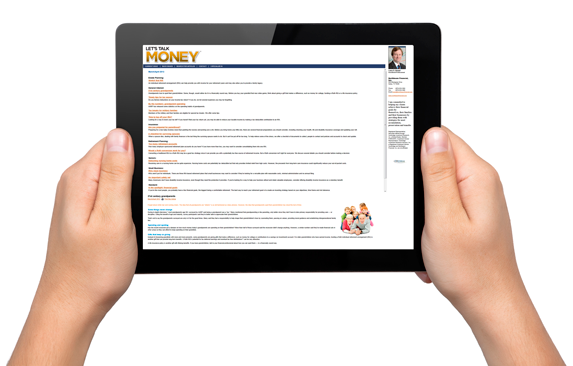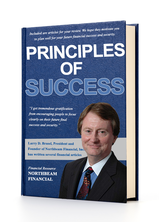WHEN IT COMES TO RETIREMENT - AGE MATTERSIn order to enjoy your retirement, you should have a good idea of how much money you will need each year to fund your desired lifestyle. To ensure that lifestyle, you will need to set aside enough money to supplement known sources of retirement income, such as a company pension and Social Security. Finally, it is important to be aware of how your age can affect your retirement decision-making. Here are some important age milestones to consider:
Age 55. If you take “early” retirement, quit, or are otherwise terminated from employment, you can generally withdraw money from 401(k), 403(b), Keogh, SEP (Simplified Employee Pension), and profit-sharing plans without being subject to the 10% penalty tax for early withdrawals. The provision for Keoghs and SEPs only applies to employees covered by such plans, not to self-employed individuals. Note also: This provision does not apply to traditional Individual Retirement Accounts (IRAs), unless you qualify for one of the exceptions, such as taking withdrawals in substantially equal periodic payments. Age 59½. Generally, you can withdraw money from IRAs, SEPs, Keoghs, Roth IRAs, and Savings Incentive Match Plan for Employees (SIMPLE) plans without being subject to a 10% penalty tax. However, most distributions from a Roth IRA will still incur a 10% penalty tax if the Roth IRA has not existed for at least five years. Age 60. Widows and widowers are eligible for Social Security benefits. Age 62. Some companies may allow retirement at this age with full pension benefits. Moreover, this is the earliest age for receiving regular Social Security benefits, but the benefit will be permanently reduced. Ages 62-64. The earnings threshold for those still working and collecting Social Security benefits is $12,000 in 2006 (indexed for inflation in future years). There is a $1 loss (a “give-back”) in benefits for every $2 earned above that amount. In addition, a portion of benefits may be taxed as income (based on a complex formula that includes wages and tax-exempt income). Age 65. Most company pension plans provide full benefits. Medicare eligibility generally begins at this age. Moreover, those born in 1937 and earlier are eligible for full Social Security benefits. However, “full retirement age” for younger workers to receive full Social Security benefits is slowly rising and will affect those born in 1938 and later. For example, full retirement age for those born between 1938 and 1959 rises incrementally until, for those born in 1960 and later, the age for receiving full benefits is 67. Those still working will be able to receive full Social Security benefits, regardless of earnings. However, some beneficiaries may find a portion of benefits may still be taxed based on a formula that includes wages and tax-exempt income. Ages 65-67. The lower earnings threshold amount noted above still applies for years prior to full retirement age attainment and a second earnings threshold rule applies for the year in which full retirement age is attained. For those still working and receiving Social Security benefits, there is a benefit loss in 2006 of $1 for every $3 over $31,800 earned for months prior to attainment. Once full retirement age is attained, the earnings threshold no longer applies. A portion of benefits may be taxed as income (based on a complex formula that includes wages and tax-exempt income). Age 70½. The required minimum distributions from a traditional qualified retirement plan must generally begin by April 1st of the calendar year following the year in which you reach age 70½. (Note: Roth IRAs are not subject to the age 70½ mandatory distribution rules.) As with all tax planning matters, be sure to consult with a qualified tax professional to help ensure your plans are consistent with your goals and objectives. RPGAGE97 Copyright © 2006 Liberty Publishing, Inc. All rights reserved. |
QUICK CONTACTREAD OUR FINANCIAL
E-NEWSLETTERS TODAY! I get tremendous gratification from encouraging people to focus clearly on their future final success and security.
Larry Brasel, President
|

|
|




